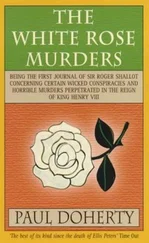Paul Beatty - The White Boy Shuffle
Здесь есть возможность читать онлайн «Paul Beatty - The White Boy Shuffle» весь текст электронной книги совершенно бесплатно (целиком полную версию без сокращений). В некоторых случаях можно слушать аудио, скачать через торрент в формате fb2 и присутствует краткое содержание. Год выпуска: 2001, Издательство: Picador, Жанр: Современная проза, на английском языке. Описание произведения, (предисловие) а так же отзывы посетителей доступны на портале библиотеки ЛибКат.
- Название:The White Boy Shuffle
- Автор:
- Издательство:Picador
- Жанр:
- Год:2001
- ISBN:нет данных
- Рейтинг книги:3 / 5. Голосов: 1
-
Избранное:Добавить в избранное
- Отзывы:
-
Ваша оценка:
- 60
- 1
- 2
- 3
- 4
- 5
The White Boy Shuffle: краткое содержание, описание и аннотация
Предлагаем к чтению аннотацию, описание, краткое содержание или предисловие (зависит от того, что написал сам автор книги «The White Boy Shuffle»). Если вы не нашли необходимую информацию о книге — напишите в комментариях, мы постараемся отыскать её.
The White Boy Shuffle — читать онлайн бесплатно полную книгу (весь текст) целиком
Ниже представлен текст книги, разбитый по страницам. Система сохранения места последней прочитанной страницы, позволяет с удобством читать онлайн бесплатно книгу «The White Boy Shuffle», без необходимости каждый раз заново искать на чём Вы остановились. Поставьте закладку, и сможете в любой момент перейти на страницу, на которой закончили чтение.
Интервал:
Закладка:
In the chill of a just-breaking morning, Swen Kaufman danced to work. Giddily in rehearsal for his magnum opus, his lanky frame spun “jump, ball, change” in the lifting dark North Carolinian mist. The slaves hated him. Marse Tom grew to hate him. Swen returned from the fields happier than he’d ever been in Boston. He considered himself dancer-in-residence at the Tannenberry plantation, free room and board and plenty of rehearsal space. Come sundown the dirty energetic primo cotton picker pranced home, back straight, chin up, a Yankee clipper lost at sea, pointing his toes in the wind.
Marse Tom decided Swen’s cultured Boston manners and skip-to-my-lou verve were bad for morale. Worse yet was the fascination in Missus Courtney Tannenberry’s lit-up cheeky countenance as she sat around listening to Swen’s stories of his carefree European escapades as a fashionable valet noir for a French choreographer. Raised in northern Virginia, Missus Tannenberry considered herself a balletomane and aficionado of high art. She’d sit under the bighouse portico fanning herself and aching for culture not based on agrarian harvest cycles. Swen was eager to play raconteur. Excused by the missus from fieldwork, he’d fill her swooning head with stories of dining in seaport bistros in Marseilles and witnessing the exquisite nascence of modern dance at the Paris Opera, the Royal Theater in Copenhagen, and London’s renowned King Theater. They discussed Swen’s theories on how the rigid daring obstinate Russian psyche would push ballet to the heights of expressionistic art. Punctuating his points with leaps and sashays around the gazebo, Swen conducted ironic lectures on how the tradition of European patrician gloating and African tribal rituals influenced the Southern cotillions. In wishful reenactments of performances staged hundreds of times in his head, he’d spin and lift Missus Tannenberry’s toddling daughters to the clouds. Marse Tom wasn’t havin’ it and demanded that Swen leave the grounds. Swen refused. How could he leave midway through choreographing a hand dance based on the dexterity needed to remove cotton balls cleanly from the stem and the intricacies of the Missus’s crocheting techniques?
Didn’t a whole lot of niggers get whipped on Tom Tannenberry’s plantation, but Marse Tom whipped Swen Kaufman. Demi-plié — five lashes. Second position — ten lashes. Pirouette over the cotton seedlings — fifteen lashes; rock salt and scotch in the wounds. A performance of Swen’s “Dance of the Discreet Glance” behind the stables merited a beating that started the dogs barking and kept slaves and masters up through the night listening to Swen’s skin sizzle. Eventually the slaves came to admire Swen’s persistence and to appreciate his art, but not before Tom Tannenberry beat the classic romanticism out of Swen’s feet and slapped the worldly effluvium from his mouth. Crumpled and broken on the ground, lips painted with blood, face powdered with red clay dust, Swen was told he could nigger jig to his heart’s content.
He healed and did, soon falling in love with his favorite partner, Clocinda Didion. Swen and Clocinda’s wedding was his final performance. Under the guise of rehearsing an elaborate wedding ceremony, he used every slave on the plantation in a glorious swirling production. On the wedding day they danced. To the accompaniment of body drums and fiddles, maids of honor, bridegroom, and guests swooped across the fields. They tightroped the tops of fences many had never even dared look at, much less touch. For most it was the first time they’d been within twenty yards of the fences. The audience consisted of the pregnant Missus Tannenberry and her four daughters, trailing the action as it traversed the grounds, applauding at the appropriate intervals. In the middle of the ceremony the Tannenberry women held the broom, cheering as the happy helot couple jumped over it, kissing in midair, landing in matrimony. In the last movement the adults passed unlit torches to the children, then lay in the slaves’ graveyard next to the mounds of earth and rotted tombstones. The children peered into the windows of the bighouse, the still unlit torches resting on their bony shoulders. Then they too went to the graveyard and lay down next to their parents. Missus Tannenberry cried for a month afterward and on every anniversary of Clocinda and Swen’s regal wedding visited the graveyard.
All this before recess. Over coffeecake and chocolate milk, kids who normally spent the respite from math teasing me about the length of my pants and placing bets on which of two shirts I would wear tomorrow begged me to continue my story.
“What happened next?”
“Why didn’t they light the torches?”
“How much is a sixpence in American money?”
“Did Euripides Kaufman know George Washington?”
“What happened next, motherfucker?”
The bell rang and they rushed back to the classroom to find Ms. Murphy sitting on the edge of her desk. The students sat in little plastic orange chairs and leaned over the tabletops. All ears and big eyes. I continued my presentation, swelling with a strange pride.
Swen and Clocinda Kaufman begat some astoundingly servile niggers. One of whom, Franz von Kaufman, was exceedingly bootlicking even for a slave. Franz von Kaufman was born looking like the quintessential Mathew Brady 1857 nigger daguerreotype. Though fresh out of Clocinda’s womb, Franz von’s glossy dark black skin was fissured by creased and starched wrinkles. A shock of wispy gray hair capped a sunken face, tight lips, and sullen yellow watery suffering eyes. Everyone called him “Old Franz von.” Missus Tannenberry delivered Compton Benjamin Quentin, the Tannenberry’s youngest and only male child, within days of Franz von. The two boys shared the same crib and nipples. Even in infancy Franz von’s subservience was evident. If baby Marse Compton wanted the nipple Franz von suckled, he’d nudge Franz von, whine, and drool in his ear, and Franz von would move without complaint. No whining, no whimpering. Clocinda soon figured out that the little Tannenberry devil was born greedy and nearly blind.
The stubborn Compton fancied himself a brave explorer and refused to let his poor sight handicap him. One nose-to-nose close-up look at his dusky running buddy Old Franz von and young Marse Compton knew intuitively that to realize his lofty goals, he’d need a loyal manservant. He asked his father that Franz von be given to him, and Tom Tannenberry, remembering his longing for a “nigger of his own,” quickly agreed. While Franz von was still a pup, Marse Tom handed his leash over to Compton Tannenberry. “Remember, son, you promised to take care of it.”
In years to come Old Franz von served as Compton’s Seeing Eye dog, constant companion, and best friend. Franz von and Compton could be found playing Inquisition in the walnut groves. This game was a degenerate version of hide-and-seek where Franz von would roll in a honeysuckle patch and then play the heathen. Bathed in young Marse Compton’s favorite smell, Franz von would hide among the walnut trees, awaiting discovery and salvation. The sightless erstwhile Torquemada would seek Franz von out, nose open for the unique scent of honeysuckle and unwashed infidel. His ears honing in on Franz von’s faux heretic war cries and blasphemes. “The creek’s burble ’n’ gurgle, the rustle in the leaves, are the boogers, sniffles, and breeze of the sneezing gods of Dixie.” Compton would find Franz von, tie him to a tree, trade his spit for Franz von’s land and soul, pelt him with walnuts, and convert the swarthy pagan by reciting biblical verse.
Time aged Marse Compton more than it did Franz von. At twenty-five Old Franz von remained a taller version of the tame Negro he’d always been; only the wrinkles circling his eyes and lips had deepened. He hadn’t grown wiser, more worldly, or even bitter about his servitude. Newfangled ideas confused him. Franz von the young adult didn’t understand the nigger talk about abolition, or the white folks’ pride in their metal gunboats. Those Braille books Marse Compton got with increasing frequency in the mail frightened him. How could he read Marse Compton the poems of Ovid and Homer if the great myths were transformed to raised dots? “Can’t teach an old nigger new tricks,” the Tannenberrys teased him. Old Franz von laughed at their perceptiveness and stayed by Compton’s side, safely leading him past the few pitfalls faced by a spoiled Southern aristocrat.
Читать дальшеИнтервал:
Закладка:
Похожие книги на «The White Boy Shuffle»
Представляем Вашему вниманию похожие книги на «The White Boy Shuffle» списком для выбора. Мы отобрали схожую по названию и смыслу литературу в надежде предоставить читателям больше вариантов отыскать новые, интересные, ещё непрочитанные произведения.
Обсуждение, отзывы о книге «The White Boy Shuffle» и просто собственные мнения читателей. Оставьте ваши комментарии, напишите, что Вы думаете о произведении, его смысле или главных героях. Укажите что конкретно понравилось, а что нет, и почему Вы так считаете.












